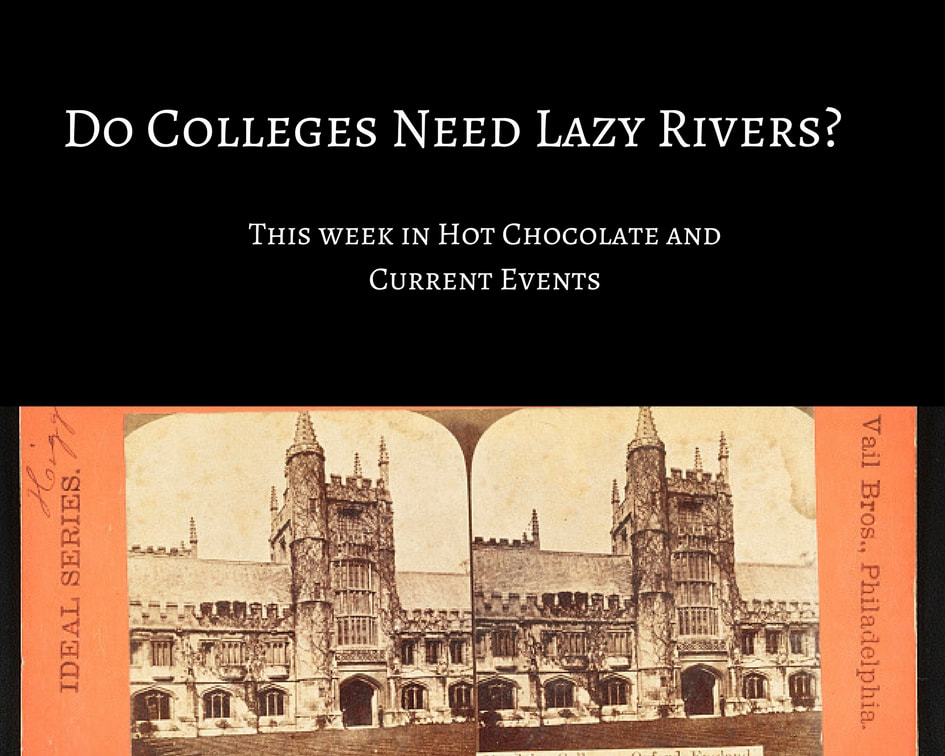 Is your family excited about the winter Olympics? Here are some great persuasive writing prompts for your kids to use during the upcoming games. Your responses can be silly or serious. Just be sure to take a position and back it up with solid thinking. #1 Why is your hometown the best site for a future winter Olympics? Write a letter to the International Olympic Committee (IOC) to persuade them to bring the next Olympic games to your town. In your response, consider the best features of your town, as well as the benefits it would provide. #2 How would you change your favorite summer Olympic sport into a winter Olympic sport? People are always petitioning the IOC to get new sports included in the Olympic games. Think about your favorite sport from the summer games. How would you change that sport into a winter sport? Write a letter to the International Olympic Commission to persuade them to accept your new summer-turned-winter sport. #3 Persuade your parents to give you two weeks off of school to watch non-stop Olympic coverage. Write a letter to your parents explaining why you should be given two weeks off from school to watch the Olympic games. (Parents, we don’t recommend you give in to this request 😃 ) #4 What should the Olympic stadiums be used for once the games are over? Olympic host cities spend lots of money on stadiums but often do not know what to do with them once the games are over. What should South Korea do with their Olympic stadiums once the games are over? Write a letter to South Korea’s president with your suggestions. #5 When should a country boycott the Olympics? There are always calls for countries to boycott the Olympic games. (The U.S. boycotted the 1980 Olympics in Moscow). Under what circumstances should a country refuse to send athletes to compete in the Olympic games?
1 Comment
 This winter, are you warming up your homeschool with Hot Chocolate and Current Events? It's our weekly initiative to help increase your family’s civic knowledge and thinking skills. The high cost of college is a perennial topic of the news. Despite rising costs, some colleges are installing things like lazy rivers to attract students. Read the following article: https://www.nytimes.com/2018/01/09/opinion/trustees-tuition-lazy-rivers.html Consider the following questions:
 Hot Chocolate and Current Events is Silverdale Press’s weekly initiative to help parents talk to their kids about what’s going on in the world. It seems like everyone’s talking about the flu these days. We hope you don’t have the flu, but it's this week’s topic! Read the following article from the KidsPost. At the bottom of the page, there are some other interesting articles about the flu you can explore. https://www.washingtonpost.com/lifestyle/kidspost/researchers-hope-to-find-stronger-flu-shots/2018/01/17/50508e98-f176-11e7-b3bf-ab90a706e175_story.html?utm_term=.477324fca38a Also, this article from the Mercury News has a neat map and video: https://www.mercurynews.com/2018/01/16/watch-how-the-flu-became-an-epidemic/
 Here on the Silverdale Press blog, we’re doing a series all about unit studies. We answer your most pressing questions and give you information on the who, what, when, where, and why of unit studies. This week, we’re talking about the “when” of unit studies. Probably not when you’re just starting out If it’s your very first week ever of homeschooling your kids, it’s probably not a good idea to dive right into unit studies. While you don’t have to have a ton of experience under your belt to do unit studies, it’s best to get your feet wet first. Get to know your kids’ learning styles. Try to understand their strengths. Get a feel for their areas of interest. See how regular curricula are working for you. Then dip your toes into unit studies. When an interest in piqued Remember that the key idea behind unit studies is to follow your kids’ interests. Learn about what delights them. For example, if they happen to pick a book off the shelf about Shakespeare—and want to learn more—by all means put together a Shakespeare unit study. Any season of the year Winter, spring, summer, or fall—unit studies are good for any season. Speaking of the seasons, it’s also a good idea to tailor your unit studies to the seasons of the calendar. In the fall, you can do a unit on pumpkins. They’re everywhere, and you can probably work in some local programming—at the library, farm, or orchard. In the winter, do a unit on snowflakes. In the spring, do a unit on garden seeds, which will allow you to work on your own garden project at the same time. For year-round schoolers, the summer can be a great time to do a unit study on science or nature. When cool or important events come up Maybe it’s a movie release or an awards ceremony. Pay attention to current events and do a unit on whatever sounds interesting. Choose a unit study that lines up with a national week or month. Maybe do a unit study to go along with National Wolf Awareness Week (October) or Women's History Month (March) or National Physical Fitness and Sports Month (May). Let the news help you design your curriculum. During the holidays The holidays are a great time to do unit studies. Children want to celebrate the holidays. As homeschoolers, we have a wonderful opportunity to infuse our holiday celebrations with learning activities. The holidays are broad, and they allow parents to draw in a range of subjects—from social studies and language arts, to music and electives. Plus, the holidays provide a great time to break from your normal homeschool routine. If you do a unit study along with the holidays, you’re really not even taking a break (though your kids may think otherwise). As you can see, the best time to do unit studies is anytime. Now tell us: when do you do unit studies in your homeschool? Answer: Anybody! Well, it's not quite that simple. In this post on the "who" of unit studies, we'll talk about how students and parents can create unit studies. As you'll see, one of the best things about unit studies is that they combine the parent's and child's learning interests!
Coming Up with Ideas Remember that the key to unit studies is to follow student interests. The job of the parent is to pick up on those interests and turn those interests into a unit study. Parents should always keep their eyes and ears open to what their kids are interested in. If you listen for them, you'll have no problem picking up on unit study cues from your kids. For example, recently our daughter kept on talking about how a character in a book almost lost her house in the Great Depression. An idea for a Great Depression unit study was born! Parents can also invent unit studies out of things that they would like to learn more about. If a parent is enthusiastic about studying any give topic, it will surely rub off on their kids. Gathering Materials It mostly falls to parents to pull together materials for unit studies and come up with lesson plans and project ideas. Though parents will shoulder most of the burden, kids should have a role in designing their unit studies as well. For example, in our Great Depression unit study, we gave our daughter a depression-era activity book from the library and let her choose from the options listed there. At the end of the day, however, parents will have to do most of the leg work. Doing the Unit Study However, one of the nice things about unit studies is that they can cut down on jumping back and forth between teaching of different grade levels. With unit studies, children of all ages can participate together. Some areas, such as language arts, will have to be adapted, but the ability to synthesize everything is good for the whole family. Purchasing Prepared Unit Studies Since unit studies can be labor intensive for parents, some publishers have prepared unit studies for purchase. Feel free to check out Silverdale Press's inventory of unit studies. They are deep and rich and take all of the labor out of unit studies for parents. No trips to the library. No Googling to find documents, writing prompts, and projects! Why not give unit studies a try in your homeschool? |
Silverdale PressCheck out our About Page to learn more about us! Categories |


 RSS Feed
RSS Feed